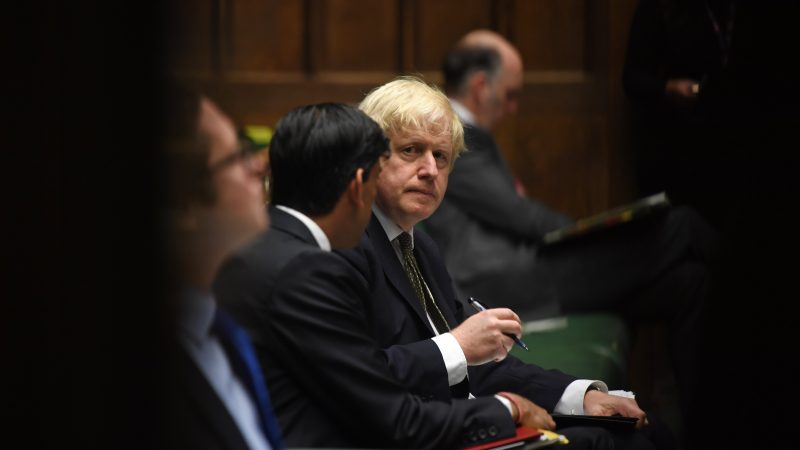
Boris Johnson will lead the Tories into the next general election, the Prime Minister told journalists en route to India. But, as he embarks on his two-day trip to the country, his Conservative colleagues back in Westminster are contemplating a tricky day. Labour has tabled a motion referring the Prime Minister to the privileges committee over the allegations that he misled parliament in his earlier responses to reports of lockdown partying in Downing Street and Whitehall (including his claim that “all guidance was followed”). Ahead of the debate, expected to kick off around 11.30, Keir Starmer has called on Conservative MPs to “do the right thing” and “vote in the national interest not under pressure from the party whips”.
Labour has made every effort to garner Tory support for its motion, or at the very least reduce actual opposition. For a start, it does not simply state that Johnson lied and was in contempt of parliament – Labour is therefore not asking Tories to make that call themselves today, but outsource it to a committee. Also, chair of the privileges committee and Labour MP Chris Bryant has said he will recuse himself from the inquiry – stepping back from the investigation by a cross-party committee that already has a Conservative majority. And, in response to the Prime Minister’s statement on his fine, PMQs and again when the motion was published, the Labour leader has been careful to make explicit overtures to Conservative MPs to consider their constituents and the sacrifices they made during the pandemic – ahead of the instruction they receive from the whips office.
Given the large majority the Conservatives have in the Commons, Johnson should have the numbers to reject the motion altogether. But with the looming threat of an embarrassing number of Tory abstentions (even if the motion is rejected) and the prospect of writing Labour’s election literature for them as Conservative MPs are forced to rally behind a rule-breaking Prime Minister, the government has instead produced a compromise amendment. It would delay the decision on whether the privileges committee should investigate Johnson until after the full Sue Gray report is published – whereas Labour’s motion would force Tories to make that choice now. “I’m very keen for every possible form of scrutiny and the House of Commons can do, I think, whatever it wants to do,” Johnson said this morning. “But all I would say is I don’t think that should happen until the investigation is completed.”
Throughout numerous scandals, from ‘wallpapergate‘ to horrific comments about letting people die during the pandemic, the Prime Minister has shown incredible staying power. Whether he leads the Tories into the next general election is ultimately down to Tory MPs (15% of them can trigger a vote of no-confidence), but Johnson appears confident that he can weather this storm as well. His unparalleled ability to survive despite his own behaviour, however, will be tested to the extreme in the next few weeks. He faces the prospect of being slapped with more fines for breaking his own Covid rules as the police continue their investigation. And the public has a well-timed (for Labour) opportunity to give its verdict on the Prime Minister – although not up for election himself in the local elections, of course, voters will have the chance to vent their anger at the Tories on May 5th. This will prove a key litmus test for those Conservative MPs nervously eyeing up their own chances in a future general election.
Sign up to LabourList’s morning email for everything Labour, every weekday morning.



More from LabourList
‘Tackling poverty should be the legacy of Keir Starmer’s government’
‘The High Court judgment brings more uncertainty for the trans community’
‘There are good and bad businesses. Labour needs to be able to explain the difference’